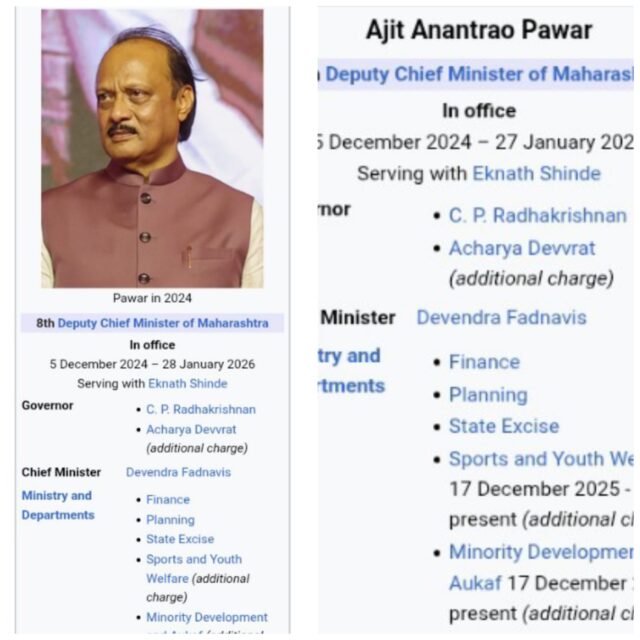European Parliament criticized India in Manipur violence case, accused of promoting Hindu majoritarianism

The motion alleges that intolerance towards minority communities in Manipur has led to the latest violence.
Concern has been expressed in this proposal that Hindu majoritarianism is being promoted in this area due to divisive policies inspired by politics.
It has been said in the resolution that the situation of violence has arisen in Manipur due to intolerance towards minority communities.
It is believed that international pressure is increasing on India regarding Manipur violence.
India has lodged a strong objection to the debate on Manipur violence in the European Parliament and has called it an internal matter.
On Thursday, the European Parliament adopted three resolutions on the human rights situation in Venezuela, Kyrgyzstan and India.
What did the resolution say on Manipur?
On the violence in Manipur, India, the resolution states that the Manipur state government has cut off internet connections and severely hampered reporting by the media.
Regarding the involvement of security forces in the recent killings, it has been said in the proposal that this has further reduced the trust in the administration.
According to the proposal, violence started in Manipur from last May and till now 120 people have died. 50,000 people have had to leave their homes and 17,000 houses and 250 churches have been destroyed.
The European Parliament has strongly appealed to the Indian administration to control the violence and to immediately take all necessary measures to stop ethnic and religious violence and to protect all religious minorities.
Members of the European Parliament have demanded Indian authorities to allow an independent investigation into the violence, deal with cases of impunity and end internet bans.
He has also appealed to all the parties to stop making inflammatory statements, build trust and play a fair role in the tension.
The European Parliament has reiterated the need to include human rights issues in all aspects of the Europe-India partnership, including trade.
Members of the European Parliament have advocated starting a Europe-India Human Rights Dialogue.
The parliamentarians called for Europe and its member states to systematically and publicly raise human rights concerns, especially freedom of speech, freedom of religion and shrinking opportunities for civil society, in high-level dialogue with India. Voting was done by raising hands on this proposal.
India tried to stop the proposal from being brought?
According to ‘The Hindu’, India’s Foreign Secretary Vinay Mohan Kwatra told reporters in New Delhi that India had tried to prevent MPs from the European Parliament from raising the issue. India had put its point of view on this issue in front of him, yet he is raising this issue.
In response to a question from ‘The Hindu’, Kwatra said, “This is completely an internal matter of India. We know what is going on in the European Parliament. We have talked to him about this. But let us also tell that this is completely an internal matter of India.
However, he flatly refused to tell the newspaper about the news published in a Manipuri newspaper that the Government of India has hired a company ‘Alber & Jigar’ in Brussels for lobbying on this issue.
The service of this company was taken to contact European MPs. It is being said that a letter was sent to him on behalf of the Government of India.
The newspaper has written that the Bharatiya Janata Party has been accused of promoting hate speech on the proposals presented in the European Parliament.
It says that the Bharatiya Janata Party-led government is implementing divisive caste policies. Some parties have alleged misuse of AFSPA, UPPA and FCRA rules.
In one resolution brought towards the Left group, an attempt was made to compare the situation in Manipur with that of Jammu and Kashmir.
Venezuela: Repression of political opponents
The Venezuelan government has been sharply criticized for banning prominent opposition leaders María Corina Machado, Leopoldo López, Henrique Capriles and Freddy Superllano from running for general elections in 2024.
The European Parliament said in its resolution that this election could prove to be very important for democracy in the country.
Members of Parliament denounced the government of Nicolás Maduro for directly interfering in the electoral process and denying the Venezuelan people the right to choose their political representatives.
He appealed to the Venezuelan administration to create an environment for free and fair elections.
Members of Parliament said that in the upcoming meeting between the European Union and the South American and Caribbean countries, the rule of law, democracy and human rights will be discussed in support.
The European Parliament has fully supported the International Criminal Court’s investigation into alleged crimes against humanity by the Venezuelan government and urged the authorities to release all political prisoners.
495 votes were cast in support of this motion and 25 votes were cast against it, while 43 abstained.
Kyrgyzstan: Curbs on media and freedom of speech
The European Parliament has expressed concern over the situation of media and freedom of speech in Kyrgyzstan.
Parliamentarians said that Kyrgyzstan was earlier considered the most democratic among the Central Asian countries. He appealed to the Kyrgyz administration to protect and respect basic rights.
The MPs appealed to repeal and reconsider all those laws, which do not match the commitment made by the country at the international level.
These laws include a law on ‘false information’, a draft law on ‘foreign representatives’, ‘mass media’ and ‘protecting children from harmful information’ and the so-called ‘LGBTI Propaganda Law’.
It has been said in the resolution that all these laws are being used to target the basic rights in the country.
MPs said Radio Azatik was forced to shut down, Kakutus Media was under criminal investigation and investigative journalist Bolot Temirov was deported to Russia.
In the resolution, the parliament has appealed to Kyrgyzstan to release all journalists, media persons and human rights activists arbitrarily imprisoned.
This proposal was passed with the support of 391 people. 41 votes were cast in the opposition while 30 remained absent.







